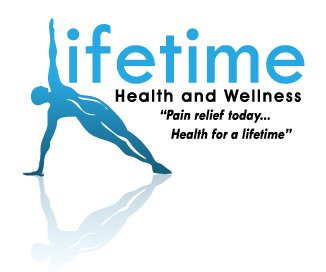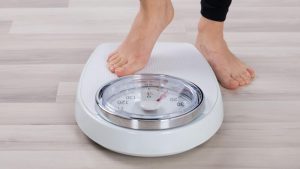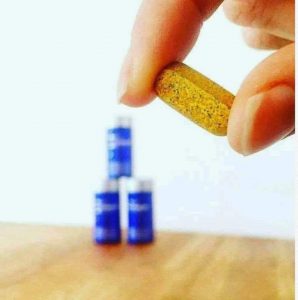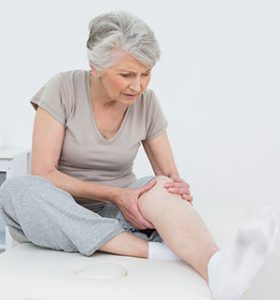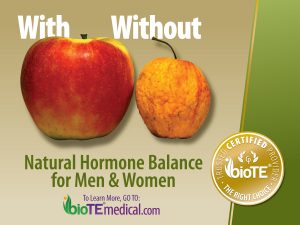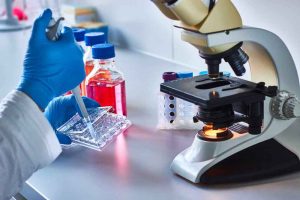While menopause is a surety for women, it will not affect all women the same way. For some, it is merely a blip on the radar. For most, however, this major hormonal milestone comes with some uncomfortable symptoms that can disrupt your physical and emotional wellbeing.
The extremely personal nature of how menopause is experienced means that each woman needs a personalized approach to coping. For many, hormone replacement therapy—widely considered the most effective treatment for menopause symptoms—is the best place to start.
In recent years, much attention and research have focused on finding safer approaches to menopause treatment and ensuring the benefits outweigh the risks. “Individualization, dose minimization, and early start of therapy” are KEY COMPONENTS of these approaches, and the use of bioidentical hormone replacement therapy (BHRT)—plant-based hormones designed to match your own—has grown tremendously as a result. By exploring the benefits of bioidentical hormone replacement therapy, you can make more informed decisions about your journey through menopause.
TREATING MENOPAUSE SYMPTOMS
As women approach MENOPAUSE, declining estrogen and progesterone levels cause a variety of symptoms throughout the body. They include:
- Vasomotor symptoms: Hot flashes, night sweats, and heart palpitations are some of the most characteristic signs of menopause.
- Urogenital changes: Vaginal dryness, pain during sex, and urinary incontinence are common amongst menopausal women.
- Emotional symptoms: Irritability, loss of concentration, memory lapses, depression, and mood swings can arise during this transitional time. Women with existing mood disorders may find that their symptoms intensify or that new symptoms emerge, while others see their symptoms drop in severity.
- Metabolic shifts: Fatigue, weight gain, and changes in body composition may occur as a result of slowing metabolism.
While approximately 80% of women experience some menopausal symptoms, an ESTIMATED 20% of those will notice severe symptoms that can significantly affect quality of life. These discomforts may occur for only a short time, or they may last for years.
Unlike a reactive, piecemeal approach to treating menopause symptoms, BIOIDENTICAL HORMONE REPLACEMENT THERAPY gets to the root of the issue: hormones. Made from vegetable products, bioidentical hormones are engineered to replicate the chemical and molecular structure of your body’s natural hormones. By restoring your hormone levels according to your specific needs, BHRT may help to minimize or even eliminate symptoms rather than simply covering them up.
THE BENEFITS OF BIOIDENTICAL HORMONE REPLACEMENT THERAPY
BIOIDENTICAL HORMONES
… ARE SUSTAINABLY AND ETHICALLY SOURCED.
Unlike some synthetic hormone treatments that rely on animal products, bioidentical hormones are created from plants. This sustainable and ethical process ensures that no animals are harmed in the production of bioidentical hormone replacement therapy.
… PROVIDE A GOOD FIT.
Hormones act as a key, unlocking various actions in target tissues as they attach to specific hormone receptors. Since bioidentical hormones are engineered to match the chemical and molecular structure of endogenous human hormones, they provide a good fit with the corresponding receptors.
… REQUIRE A THOROUGH DIAGNOSTIC PROFILE.
The complexity of human hormones means that thorough diagnostic testing is necessary to fully understand your needs. A practitioner specializing in BHRT will typically order comprehensive laboratory tests before developing a treatment plan tailored to your unique hormonal landscape.
… ALLOW FOR PRECISE DOSING.
Custom-compounded bioidentical hormone replacement therapy is formulated according to your doctor’s exact specifications, which means you aren’t limited to a small range of standardized doses. This personalization facilitates the use of smaller, more targeted doses that may minimize the risk of side effects while ensuring efficacy.
… OFFER INNOVATIVE DELIVERY METHODS.
Hormone treatments taken orally must be broken down as they are absorbed in the GI tract and processed through the liver. To deliver replacement hormones in small, controlled doses over an extended period of time, many practitioners have embraced the use of delivery methods that bypass the digestive system. These include transdermal (applied to the skin), subcutaneous (implanted under the skin), and transvaginal (absorbed through the vagina) modes of administration. Being able to choose from a variety of delivery methods means you can find one that fits your lifestyle and your preferences. They may also be a SAFER ALTERNATIVE to oral doses.
Today, one of the most innovative delivery methods is HORMONE PELLETS. Inserted just below the skin every 120 days in your practitioner’s office, these tiny implants simulate the process by which your ovaries have delivered hormones in the past. As they gradually break down, the pellets release hormones at a steady and predictable rate. When produced by a reputable compounding pharmacy, you can be sure that your pellets were made with the utmost care and attention to safety, purity, and precision.
… ALLOW ACCURATE MONITORING.
Ensuring that hormone therapy reaches therapeutic levels inside the body requires continued monitoring of both your hormone levels and your symptoms. Since bioidentical hormones are indistinguishable from your own hormones, follow-up testing provides an accurate picture of your functional levels.
… PROTECT AGAINST UNDERLYING DANGERS.
While the immediately observable symptoms of menopause may call attention to declining hormone levels, this decline means there are other, less obvious, changes occurring below the surface. Menopause is associated with structural and functional changes that increase the risk of osteoporosis, cardiovascular disease, hypertension, and type 2 diabetes. Hormone therapy MAY OFFER PROTECTION against these serious health conditions.
SET YOURSELF UP FOR SUCCESS
If there is one thing most health care practitioners agree on, it’s that one protocol simply cannot meet the needs of every woman experiencing menopause. Any Hormone Therapy Strategy therefore, must include hormone types, dosages, and administration methods that make sense for you, taking into account your age, medical history, symptoms, and lifestyle.
As the benefits of bioidentical hormone replacement therapy become clearer and more women opt for long-term treatments, the advantages of pellet therapy are becoming particularly evident. If you and our hormone specialists decide that BHRT is a good option, this innovative method may help you achieve your treatment goals. By addressing your current symptoms and supporting long-term wellness, you can set yourself up for greater comfort and better health during menopause and for years to come.
